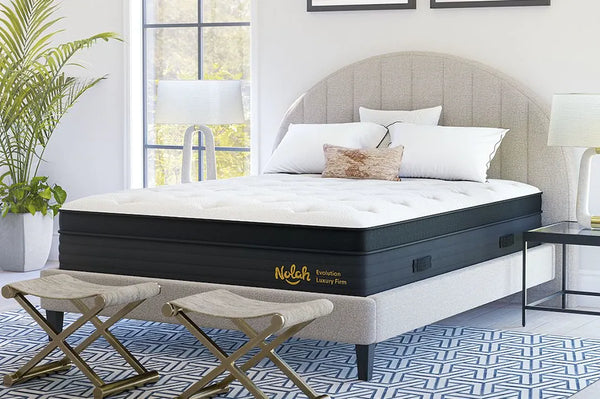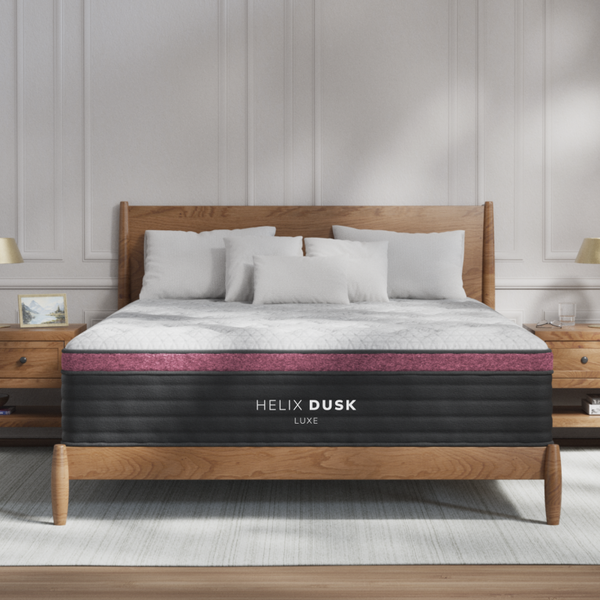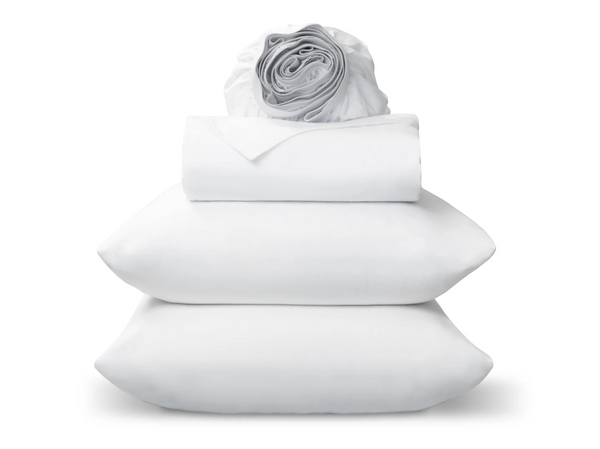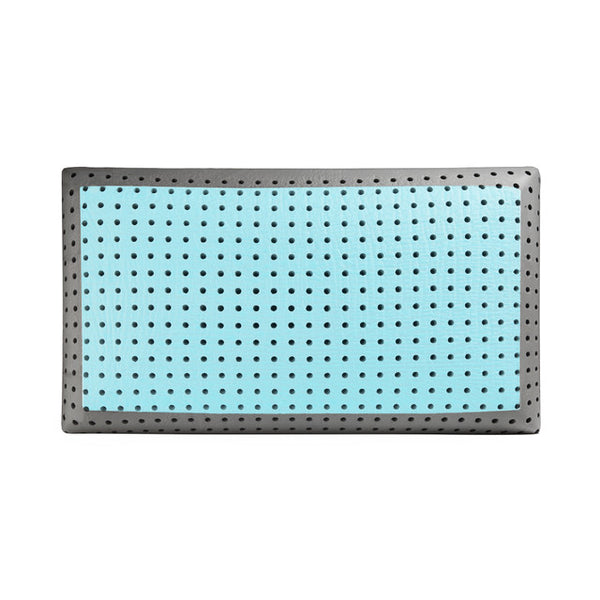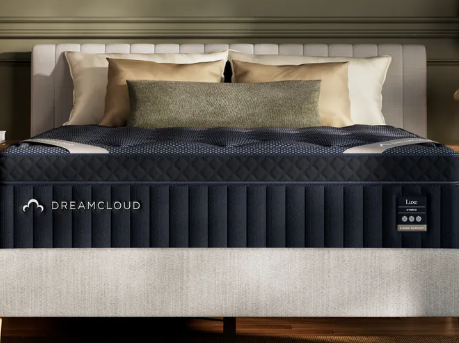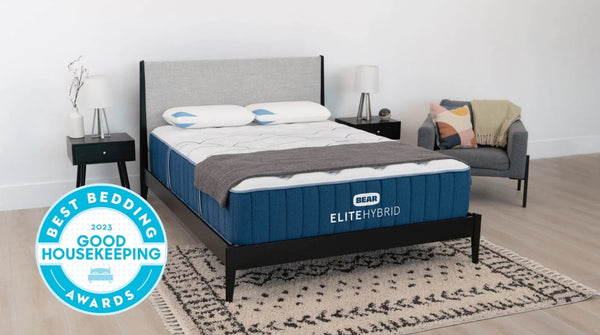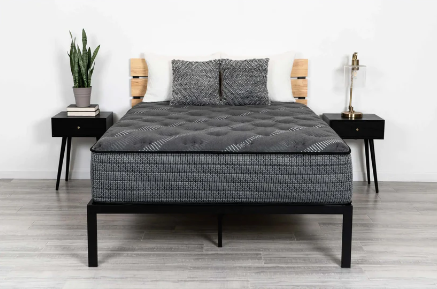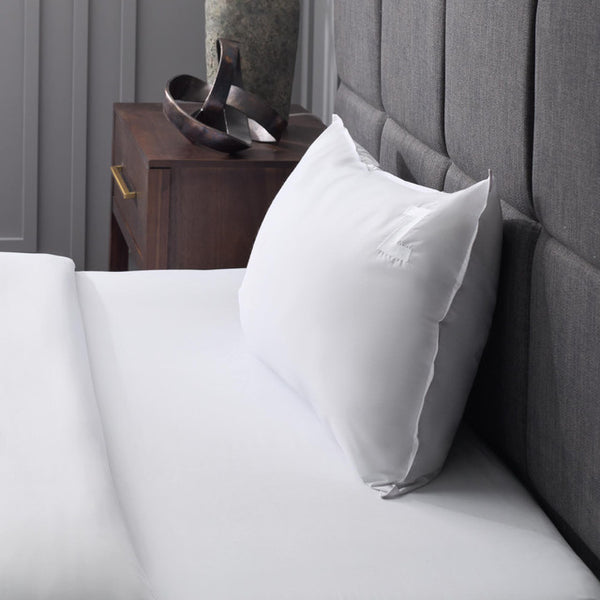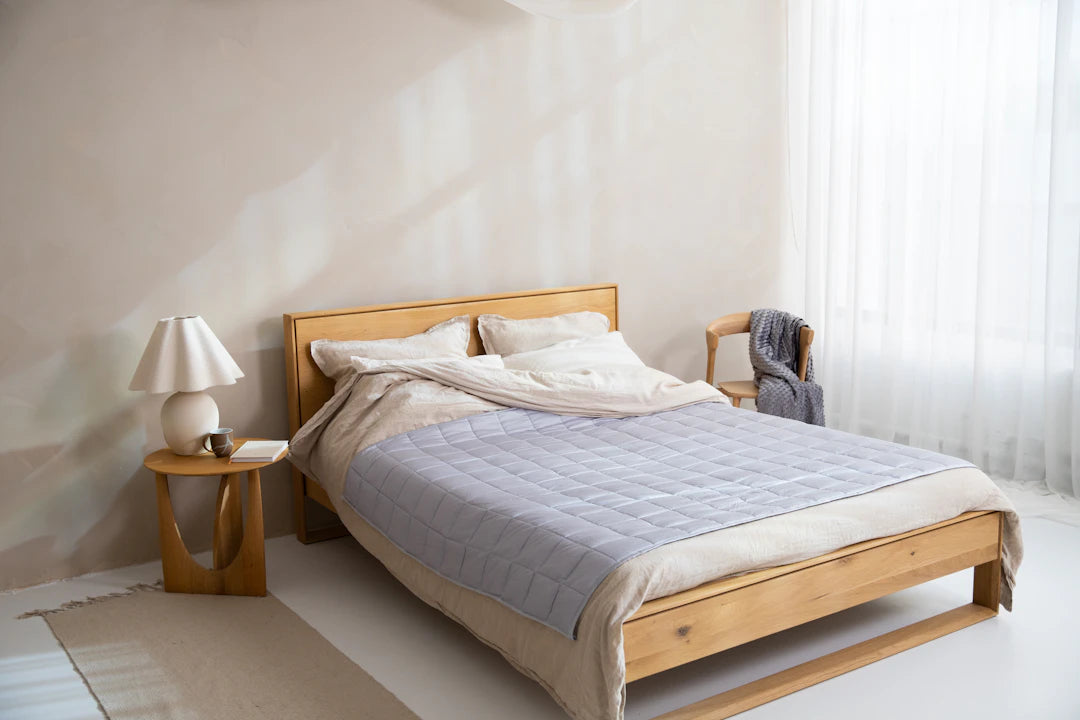
Overview
Choosing the right mattress depends on your climate, as temperature and humidity affect material performance. In hot, humid areas, opt for breathable materials like latex or innerspring for better airflow, while cold, dry climates benefit from insulating materials like memory foam. Consider your personal preferences and health needs, such as allergies, when selecting a mattress. Regular maintenance and proper cleaning can enhance longevity. Consult experts for tailored advice to find your ideal sleep solution.
Frequently Asked Questions
1. How does climate affect my mattress choice?
2. What mattress materials are suitable for hot and humid climates?
3. What should I consider for mattresses in cold and dry climates?
4. How can humidity impact my mattress's longevity?
5. What should I do if I have allergies and live in a humid area?
When it comes to choosing the perfect mattress, many factors come into play. One of the most significant yet often overlooked elements is climate. The temperature and humidity of your environment can dramatically influence your choice of mattress materials and features. In this comprehensive guide, we will explore how different climates affect mattress selections and what you should consider to ensure a comfortable sleep experience tailored to your environment.
Understanding Mattress Materials
The world of mattresses is vast, with various materials and technologies designed to offer comfort and support. However, each material reacts differently to environmental conditions. Let's break down some of the most common materials:
Memory Foam
Memory foam mattresses are popular for their contouring abilities and pressure relief. However, they can retain heat, making them less suitable for warmer climates. In hot and humid conditions, memory foam can trap heat and lead to an uncomfortable sleeping experience.
Latex
Latex mattresses, both natural and synthetic, offer a balance of comfort and breathability. They tend to be cooler than memory foam due to their open-cell structure that allows for better airflow. For those living in hotter climates, a latex mattress can provide a comfortable night's sleep without the added warmth that memory foam often brings.
Innerspring
Innerspring mattresses are known for their traditional feel and excellent airflow. The coil system allows for a cooler sleep experience, making them an excellent option for those in warm climates. Additionally, they provide adequate support while minimizing motion transfer.
Climate Zones: What to Consider
Different regions experience varying climate conditions, which can significantly impact your mattress choice. Here, we will discuss two main climate categories: hot and humid, and cold and dry.
Hot and Humid Climates
If you live in a climate characterized by heat and humidity, moisture management becomes crucial. Here are some factors to consider:
- Breathable Materials: Opt for mattresses made of breathable materials such as latex, hybrid models, or innersprings, as they promote airflow and help regulate body temperature.
- Cooling Technologies: Look for mattresses that incorporate cooling technologies, such as gel-infused memory foam or phase-change materials, to draw heat away from your body.
- Moisture-Wicking Covers: Choose mattresses with covers made of moisture-wicking materials to help manage perspiration and keep you dry throughout the night.
Cold and Dry Climates
In contrast, colder climates may require different considerations. Here’s what to keep in mind:
- Insulating Properties: Look for mattresses with good insulating properties, like memory foam or certain types of latex, to help retain body heat.
- Material Choices: Opt for materials that provide warmth without sacrificing comfort. For example, hybrid mattresses that combine foam and innerspring systems can offer both support and warmth.
- Comfort Layers: Consider adding comfort layers, such as a plush mattress topper, for extra warmth and cushioning during colder months.
Humidity Impact on Mattress Longevity
Humidity can significantly affect the lifespan of your mattress. In humid conditions, moisture can become trapped within the materials, leading to mold and mildew growth. Here are some tips to enhance your mattress’s durability in humid climates:
- Use a Dehumidifier: Keep the humidity levels in your bedroom in check with a dehumidifier to prevent moisture buildup.
- Opt for Washable Covers: Choosing a mattress with removable and washable covers can help keep allergens at bay and prolong the life of your mattress.
- Regular Cleaning: Regularly clean your mattress as per the manufacturer's recommendations to eliminate any potential for mold and keep it fresh.
Allergies and Temperature Sensitivity
Your climate does not just affect the mattress materials; it can also impact allergies and your overall health. Here’s why you should consider this aspect in your mattress choice:
Allergens in Humid Climates
In humid areas, dust mites thrive, and molds can flourish. If you suffer from allergies, here are some things you should keep in mind:
- Hypoallergenic Materials: Look for mattresses made from hypoallergenic materials that resist dust mites and mold.
- Regular Maintenance: Ensure to maintain a cleaning routine, including frequent washing of bedding and using protective covers to prolong your mattress's life.
Cold Climates and Respiratory Issues
In colder areas, dry air can exacerbate respiratory issues, leading to heightened discomfort during sleep. To combat this:
- Material Selection: Memory foam mattresses can be beneficial as they have the ability to adapt and provide warmth.
- Humidifiers: Consider using a humidifier in your bedroom to maintain a balanced humidity level, allowing for easier breathing throughout the night.
Myth-Busting: Temperature-Controlled Sleep Options
There are many myths surrounding temperature-controlled mattresses. Below we will clarify some of the most common misconceptions:
Myth: All Memory Foam Mattresses are Hot
While many memory foam mattresses are known for retaining heat, recent advancements in technology have led to the creation of gel-infused memory foam that actively regulates temperature. Always check for cooling features!
Myth: You Can’t Find a Good Mattress in a Hot Climate
This is simply not true. Many manufacturers are now designing mattresses specifically for hot climates, such as those with cooling gel layers, breathable materials, and excellent airflow solutions. You can indeed find a mattress that promotes a comfortable sleep experience even in warm conditions.
Your Personalized Sleep Solution
Choosing the right mattress for your climate is crucial for a restful night’s sleep. Here are some personalized solutions to ensure you select the most fitting option:
- Know Your Preferences: Identify your sleep preferences. For example, do you like a firmer feel, or do you prefer something that contours to your body? This will help narrow down your choices.
- Test it Out: If possible, try out different types of mattresses in-store. This hands-on experience will give you a sense of what feels right.
- Consider the Warranty: A good warranty can be indicative of quality. Always check the warranty and return policy to ensure you have options if the mattress doesn’t meet expectations.
Expert Advice: Tales from Professionals
Seeking professional advice can prove invaluable when navigating mattress choices in relation to climate. Don’t hesitate to engage with sleep specialists who can provide tailored recommendations based on your needs. They can offer insights into:
- Brand recommendations that align with your climate needs
- Adjustments you may need to make based on your specific sleep conditions
- Guidance on the longevity of various mattress types in your climate
Your Sleep Sanctuary Awaits
Choosing a mattress that perfectly aligns with your climate, comfort preferences, and health requirements doesn’t have to be a daunting task. By understanding how different materials react to your environment and diligently selecting your mattress based on your unique needs, you can create your ideal sleep sanctuary. Remember that a good night's sleep is essential for your overall well-being, so take your time, do thorough research, and consult with experts if needed. With the right choice, you’ll be sleeping soundly and comfortably in no time!

